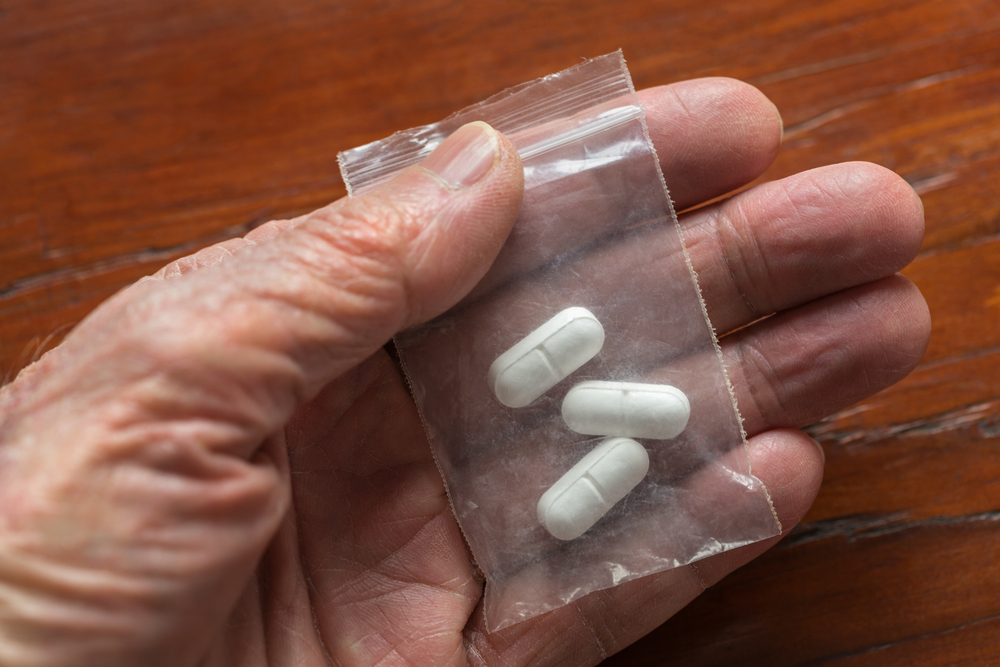Last Updated:
July 21st, 2025
Dexedrine Addiction | Symptoms, Effects and Causes
Dexedrine is one of many medicines prescribed for ADHD and narcolepsy. While many people may not be as familiar with it compared to alternatives like Ritalin or Adderall, Dexedrine can be just as effective and as dangerous. Dexedrine addiction is an incredibly harmful condition which can affect both legal prescription users and drug misusers. Understanding how Dexedrine works and how and why it is addictive is important for its safe use.

What is Dexedrine?
Dexedrine is an amphetamine medication given to people with ADHD or narcolepsy. It is the main brand name for dextroamphetamine, and it helps users concentrate better or stay awake by increasing levels of neurotransmitters like dopamine and norepinephrine.
While Dexedrine can be highly effective when used correctly, it also has a high potential for abuse and addiction. Because of its stimulating effects, Dexedrine is sometimes misused for performance enhancement at school or work and even sometimes taken to get high like you would with illicit drugs.
Like other stimulant medications, potential Dexedrine side effects include:
- Increased heart rate
- Insomnia
- Loss of appetite
- Extreme anxiety
- Dexedrine addiction
- Teeth grinding
- Erectile issues in men
- Blurred vision
- Dry mouth
- Tics
For these reasons, Dexedrine medication must be used only under the supervision of a healthcare provider to manage the risks effectively.
Ritalin vs Dexedrine
Ritalin is perhaps the best-known ADHD medication, but Dexedrine has some key similarities and differences. Both are central nervous system stimulants used to treat ADHD, but they contain different active ingredients.
Both medications can improve focus and attention and control impulsivity, but they may vary slightly in effectiveness and side effects. For example, Dexedrine generally has a longer duration of action than Ritalin, which might require multiple doses throughout the day.
The choice between them typically depends on how a person responds to each medication and their specific health needs.
What is Dexedrine addiction?
Dexedrine addiction means an overpowering urge to continue using the drug despite its detrimental effects. Abusing Dexedrine for performance enhancement or even for the genuine management of ADHD or narcolepsy symptoms can provide initial benefits.
However, as your system gets used to the presence of Dexedrine, it begins to depend on it more, driving you to use Dexedrine increasingly. This cycle can escalate, with more Dexedrine tablets required to feel “normal”. This increase is often gradual, making it difficult to recognise until the need becomes a full-blown compulsion to take Dexedrine.
Over time, your brain can also become dependent on Dexedrine, essentially forgetting how to operate without it. When you suddenly lower your dose or stop taking Dexedrine tablets altogether, it can shock your system. This often results in painful withdrawal symptoms, making the process of quitting Dexedrine daunting and frequently leading to relapse.On a psychological level, stimulant addiction can come to convince you of Dexedrine’s indispensable role in your life. This psychological grip only adds to the difficulty of withdrawal and creates a sense that life without Dexedrine would be impossible.
How to spot the warning signs of dexedrine addiction
Awareness is critical when using prescribed stimulants like Dexedrine to manage health conditions. Spotting these early Dexedrine addiction signs and symptoms can prevent serious complications and might even save your life:
- Your typical dosage seems inadequate.
- Worrying excessively about securing more stimulants.
- Having frequent arguments with loved ones over your drug use.
- Facing withdrawal symptoms like headaches or emotional lows when you stop.
- Opting to use stimulants over attending to personal or professional responsibilities.
- Tricking doctors into prescribing more stimulants.
- Ignoring the detrimental health and relationship consequences to continue using.

If these are red flags that are familiar to you, then professional help for Dexedrine addiction could save your life.
What causes Dexedrine addiction?
The enticing effects of stimulants like Dexedrine only scratch the surface of why some people abuse it and become addicted. In fact, there are many other factors which mean you may be more or less likely than others to develop a Dexedrine addiction. These may include:
What does Dexedrine do to your health?
Some people mistakenly believe that prescription drug addictions are less serious than those of illegal drugs. This couldn’t be further from the truth, as Dexedrine addiction can be incredibly dangerous. Some of the biggest risks include:
How to help someone with Dexedrine addiction
Breaking away from Dexedrine addiction should start with a meticulously supervised prescription drug detox. This process focuses on slowly reducing your Dexedrine intake, helping your body adjust without the harsh effects of an immediate stop. Depending on your needs, your detox may also give you certain medicines aimed at reducing the withdrawal symptoms.
Post-detox, the next vital stage of recovery, involves a deep dive into the origins of your Dexedrine addiction. This crucial work happens in prescription drug rehab, where you can choose from private UK clinics to no-cost NHS facilities. Inpatient Dexedrine rehab is particularly valuable because it offers a comprehensive care environment that removes you from everyday triggers, allowing you to focus wholly on your rehabilitation.
Where to get help for Dexedrine addiction
Struggling with Dexedrine addiction? You don’t have to face it alone. Addiction Helper connects you with the right recovery programs tailored to your needs. Take the first step towards a healthier, addiction-free life—contact us today to explore your treatment options.
Our compassionate team are ready and available to take your call, and guide you towards lasting the lasting addiction recovery you deserve.
Frequently Asked Questions
(Click here to see works cited)
- PubChem. “Dextroamphetamine | C9H13N | CID 5826 – PubChem.” PubChem, https://pubchem.ncbi.nlm.nih.gov/compound/Dextroamphetamine. Accessed 31 January 2025.
- Shoptaw, Steven J., et al. “Treatment for Amphetamine Psychosis.” The Cochrane Database of Systematic Reviews, vol. 2009, no. 1, 2009, p. CD003026, https://doi.org/10.1002/14651858.CD003026.pub3. Accessed 31 Jan. 2025.
- Williams, Robert J et al. “Methylphenidate and dextroamphetamine abuse in substance-abusing adolescents.” The American journal on addictions vol. 13,4 (2004): 381-9. doi:10.1080/10550490490483053

